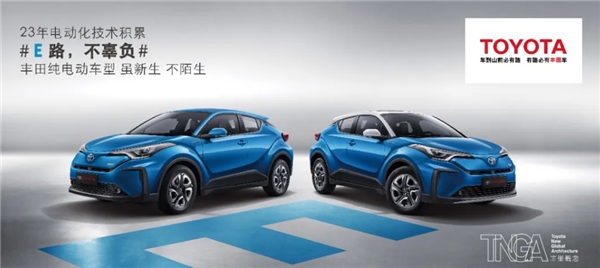Toyota’s three BEV models to go on sale in China in late April
Shanghai (ZXZC)- Japanese automaker Toyota announced it will put three BEV models onto the China market in late April, formally starting its all-electric course from the world's biggest auto market.
The upcoming advent of three models involves the C-HR EV, IZOA EV and the Lexus-branded UX 300e, which is set to hit the market on April 26.

(UX 300e, photo source: Lexus' WeChat account)
As the first production model under the Lexus Electrified banner, the battery-powered UX 300e was built on the basis of the UX crossover with the latter's signature design and the utility traits retained. Using a grille similar to that of the fuel-burning version, designers don't highlight the car's BEV nature on purpose at the front face.
The UX 300e's motor provides a natural-yet-brisk sprint performance, and the high-capacity batteries enable a 400-km driving range.

(C-HR EV & IZOA EV, photo source: Toyota China's WeChat account)
The C-HR EV and the IZOA EV are sibling models manufactured by GAC Toyota and FAW-Toyota respectively. Both of them are built on the Toyota's TNGA (Toyota New Global Architecture).
The battery pack located directly underneath the floor of the cabin not only saves the interior space, but also delivers a low center of gravity, said Toyota. Besides, the torsional rigidity of the C-HR EV/ IZOA EV is increased by 20% over the existing model because the battery pack is engineered as a part of the body frame.
Leveraging the knowledge acquired when developing hybrid vehicles, the efficiency of the motor and the safety of batteries are both maximized. Cold air intake pipes are utilized to form a buffer zone so as to protect the battery pack where the battery high-voltage circuit is located.
The C-HR EV/ IZOA EV carries a 54.3kWh battery pack that averagely consumes 13.1kWh of electricity per 100km and delivers NEDC-rated range of 400km.

